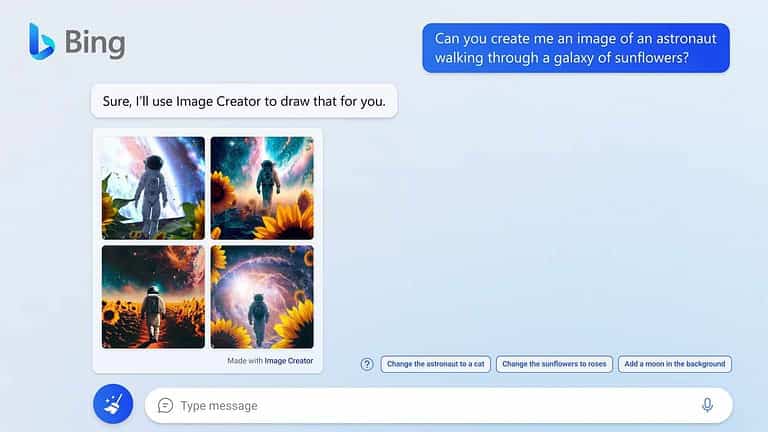
Microsoft Azure AI provides a comprehensive cloud platform for building intelligent applications that leverage artificial intelligence technologies. From simple chatbots to complex data analysis systems, Azure offers tools that help developers create AI solutions without needing deep expertise in data science. Azure AI platform combines pre-built services, customizable models, and development tools that make artificial intelligence accessible for businesses of all sizes.
Organizations can use Azure AI services to extract insights from documents, understand speech, analyze images, or create personalized customer experiences. These capabilities work together with Azure’s broader cloud ecosystem, making it easier to integrate AI into existing applications and workflows. The platform handles the complex infrastructure so teams can focus on solving business problems.
1. What is Azure AI?
Azure AI services are cloud-hosted tools and APIs that bring cognitive and generative AI capabilities into applications. They cover a wide range of tasks such as vision, speech, language, decision-making, and generative AI with Azure OpenAI Service.
👉 In short, Azure AI makes it easier to add intelligence, automation, and insights into apps and workflows (source: Microsoft Learn).
2. Key Components of Azure AI
🔹 Azure AI Services
Prebuilt and customizable APIs for:
- Vision – image recognition, facial analysis, OCR.
- Speech – speech-to-text, text-to-speech, translation.
- Language – natural language processing, summarization, translation.
- Decision – personalization, anomaly detection, content moderation.
- Search – AI-enhanced search and indexing.
🔹 Azure OpenAI Service
- Provides access to GPT models (like GPT-4 and GPT-4o) for natural language, code generation, and reasoning tasks.
- Can be combined with enterprise data using Azure AI Search for retrieval-augmented generation (RAG).
🔹 Azure Machine Learning (Azure ML)
- A full ML lifecycle platform for training, deploying, and managing custom AI/ML models.
- Includes AutoML, MLOps, Responsible AI tools, and integration with popular frameworks like PyTorch, TensorFlow, and Scikit-learn.
🔹 Cognitive Search (Azure AI Search)
- AI-powered search service that adds semantic search, vector search, and knowledge mining to enterprise data.
3. Common Use Cases
Azure AI is widely used across industries for:
- Customer service → AI chatbots, call center automation.
- Healthcare → medical image analysis, patient triage, documentation.
- Retail → personalized recommendations, demand forecasting.
- Finance → fraud detection, risk analysis, document processing.
- Manufacturing → predictive maintenance, quality control via computer vision.
4. Benefits of Azure AI
- ✅ Scalability – cloud-native, elastic infrastructure.
- ✅ Prebuilt intelligence – no need to reinvent models for common tasks.
- ✅ Customizability – fine-tune or build models with your own data.
- ✅ Security & Compliance – enterprise-grade governance and responsible AI tools.
- ✅ Integration – works seamlessly with Microsoft 365, Dynamics 365, and Power Platform.
5. Getting Started
- Sign up for Azure → Azure AI Services
- Explore prebuilt APIs (Vision, Speech, Language).
- Try Azure OpenAI Service for generative AI projects.
- Use Azure ML for custom model training and deployment.
- Integrate with Azure AI Search for enterprise data intelligence.
✅ In summary: Microsoft Azure AI provides a comprehensive, enterprise-ready AI platform that combines prebuilt services, generative AI, and full machine learning capabilities. Whether you need to add simple cognitive features to an app or build large-scale AI solutions, Azure AI offers the tools to do it securely and at scale.
Key Takeaways
- Azure AI offers both ready-to-use services and customizable AI models that reduce the technical barriers to implementing intelligent solutions.
- Businesses can integrate AI capabilities like document processing, computer vision, and natural language understanding into applications without extensive machine learning expertise.
- Microsoft’s comprehensive AI platform provides the tools, infrastructure, and security features needed to develop and deploy AI solutions at enterprise scale.
Understanding Microsoft Azure AI
Microsoft Azure AI represents a comprehensive cloud-based platform that delivers powerful artificial intelligence capabilities to organizations of all sizes. The platform combines sophisticated tools, services, and infrastructure that enable developers and business users to create intelligent applications.
History and Evolution of Azure AI
Microsoft’s journey into cloud-based AI began in 2016 when the company introduced its first set of cognitive services on the Azure platform. These initial offerings focused on basic capabilities like image recognition and natural language processing.
By 2018, Microsoft had significantly expanded its AI portfolio by integrating machine learning capabilities with its cloud infrastructure. This period marked a strategic shift as the company began positioning Azure as a complete AI platform rather than just a collection of individual services.
Between 2020 and 2025, Azure AI underwent rapid development with the introduction of enterprise-scale AI solutions that could handle massive datasets and complex models. Microsoft’s investments in OpenAI and other partnerships further enhanced the platform’s capabilities.
The evolution of Azure AI reflects Microsoft’s commitment to democratizing artificial intelligence, making powerful tools accessible to organizations without requiring specialized expertise.
Core Principles of Azure AI
Azure AI is built on three fundamental principles: accessibility, scalability, and responsible use. Microsoft designed the platform to be accessible to users with varying levels of technical expertise, from experienced data scientists to business users.
Scalability forms the backbone of Azure’s AI infrastructure, allowing applications to handle increasing workloads without compromising performance. The platform automatically provisions and scales resources based on demand.
Azure AI services emphasize responsible AI development with built-in features for transparency, fairness, and security. Microsoft provides tools to detect and mitigate bias in AI models and ensures compliance with regulatory requirements.
The platform’s pre-built AI models enable quick implementation of common functions, while custom model development capabilities support specialized business needs.
Azure AI Ecosystem
The Azure AI ecosystem consists of three primary components:
- AI Services – Pre-built APIs for vision, speech, language, and decision-making capabilities
- Machine Learning Tools – Comprehensive resources for building, training, and deploying custom models
- Infrastructure – Purpose-built hardware and optimization techniques for AI workloads
Azure AI fundamentals provide a foundation for developers to create applications with cognitive intelligence. The platform supports both no-code solutions through visual interfaces and advanced development environments for data scientists.
Microsoft’s integration of AI across its broader cloud platform creates a unified experience where AI capabilities can be embedded into virtually any application or workflow. This integration extends to popular tools like Power BI, Microsoft 365, and Dynamics 365.
Microsoft Azure AI Services
Microsoft Azure offers a comprehensive suite of AI capabilities that help developers create intelligent applications. These services range from pre-built models to customizable solutions that can be integrated into various applications and workflows.
Azure Cognitive Services
Azure Cognitive Services provides developers with pre-built AI capabilities accessible through APIs. These services enable applications to see, hear, speak, understand, and interpret user needs.
Key components include:
- Vision: Image analysis, face detection, and optical character recognition
- Language: Text analysis, translation, and natural language processing
- Speech: Speech-to-text, text-to-speech, and speech translation
- Decision: Content moderation and anomaly detection
These services require minimal AI expertise to implement. Developers can quickly integrate these capabilities using simple REST API calls or SDKs available in many programming languages.
Organizations benefit from these services through reduced development time and cost while still delivering sophisticated AI features. Many of these services also offer customization options to adapt to specific business requirements.
Azure Machine Learning
Azure Machine Learning provides a cloud-based environment for training, deploying, and managing machine learning models. This service caters to data scientists and developers of all skill levels.
The platform includes:
- MLOps capabilities: Streamlined development and deployment workflows
- AutoML: Automated model creation and hyperparameter tuning
- Designer: Drag-and-drop interface for creating ML pipelines without coding
- Notebooks: Jupyter notebook integration for code-first experiences
Azure Machine Learning supports both traditional ML approaches and deep learning frameworks like TensorFlow and PyTorch. The service provides robust compute options including CPU, GPU, and specialized hardware.
Data scientists can collaborate effectively through shared workspaces and version control integration. Models can be deployed as endpoints for real-time or batch inference, making them accessible to business applications.
Azure AI Studio
Azure AI Studio offers an integrated environment for building, testing, and deploying AI solutions. This unified workspace simplifies the AI development lifecycle.
Key features include:
- Project management tools: Organize resources, track experiments, and manage deployments
- Integrated testing: Evaluate models against various metrics
- Responsible AI tools: Assess fairness, transparency, and ethics of AI systems
- Deployment automation: Streamline the process of moving models to production
The studio environment supports both low-code and code-first approaches. This flexibility allows technical and less technical team members to contribute to AI projects.
AI Studio integrates with other Azure services to provide end-to-end workflows. Users can access data sources, compute resources, and deployment targets all from a single interface.
OpenAI Service
Azure OpenAI Service brings powerful generative AI models to the Azure platform. This service provides access to OpenAI’s advanced models with the security and compliance features of Azure.
Available models include:
- GPT-4: Advanced language model for complex text generation and reasoning
- DALL-E: Image generation from text descriptions
- Embeddings: Vector representations for semantic search and content understanding
- Fine-tuning options: Customize models for specific domains or applications
The service comes with content filtering capabilities and usage monitoring. This helps organizations implement responsible AI practices while leveraging powerful generative capabilities.
Enterprise features include private networking, regional availability, and compliance certifications. These additions make generative AI accessible to organizations with strict security and regulatory requirements.
Azure AI Development Tools
Microsoft Azure offers developers a comprehensive set of tools to build, deploy, and manage AI solutions efficiently. These tools range from specialized hardware kits to software development resources that simplify AI implementation across various platforms.
Azure AI Development Kits
Azure AI development kits provide hardware and software bundles that help developers prototype and build AI applications quickly. The Azure AI Platform supports these kits with pre-configured environments that reduce setup time and complexity.
The Vision AI Developer Kit integrates with Azure services to enable camera-based AI solutions with edge computing capabilities. This allows organizations to process visual data locally before sending relevant information to the cloud.
For voice and audio applications, the Speech Development Kit connects seamlessly with Azure Cognitive Services. Developers can implement speech recognition, text-to-speech, and voice authentication features with minimal effort.
These kits include reference designs and sample code that demonstrate best practices for deploying AI solutions in production environments.
Azure AI SDKs
Software Development Kits (SDKs) for Azure AI enable programmers to integrate Azure AI services into applications using their preferred programming languages. Microsoft provides SDKs for Python, JavaScript, .NET, Java, and other popular languages.
The Azure AI SDK simplifies access to services like Computer Vision, Language Understanding, and Custom Neural Voice. Developers can use these SDKs to add capabilities such as:
- Image and video analysis
- Natural language processing
- Document intelligence
- Anomaly detection
- Personalized content recommendations
Integration with Azure Machine Learning through dedicated SDKs allows data scientists and developers to train, deploy, and manage custom models. Version control and compatibility management are built into these SDKs to ensure consistent development experiences.
Copilot Studio for AI Development
Copilot Studio represents Microsoft’s latest innovation in AI development tooling. This environment leverages generative AI models to assist developers in creating AI applications with less code and greater efficiency.
The platform provides intelligent code suggestions and completions based on natural language descriptions of desired functionality. Developers can describe what they want to build, and Copilot Studio generates relevant code snippets or entire functions.
It offers specialized templates for common AI scenarios such as chatbots, content generation, and predictive analytics. These templates incorporate best practices and security considerations from the start.
Copilot Studio integrates with Azure’s broader AI ecosystem, allowing seamless connection to services like Azure OpenAI Service and Cognitive Services. This integration enables developers to build complex AI solutions without deep expertise in each underlying technology.
AI Technologies and Applications
Azure AI services enable organizations to build intelligent applications with a comprehensive suite of tools and services. These technologies address key areas of artificial intelligence that help businesses transform operations, enhance customer experiences, and drive innovation.
Natural Language Processing
Natural Language Processing (NLP) on Azure allows applications to understand and interpret human language. The Azure AI services platform offers powerful NLP capabilities through Language Service, which includes:
- Text Analytics: Extracts key phrases, detects sentiment, and identifies entities
- Translator: Provides real-time text translation across 100+ languages
- Question Answering: Creates conversational interfaces from existing content
- LUIS (Language Understanding): Builds natural language understanding into apps
These tools help businesses create chatbots, analyze customer feedback, and process documents automatically. Companies use Azure NLP to improve customer service experiences and gain insights from unstructured text data.
The integration of these services with other Azure products makes it easier to deploy NLP solutions at scale without deep expertise in linguistics or machine learning.
Computer Vision
Computer Vision services on Azure enable applications to interpret and understand visual content. These intelligent capabilities allow machines to process images and video similar to human vision systems.
Key Computer Vision features include:
- Image Analysis: Identifies objects, brands, faces, and extracts text
- Face API: Detects and recognizes faces, emotions, and attributes
- Video Indexer: Analyzes video content for insights and metadata
- Custom Vision: Builds custom image classification models with minimal data
Industries leverage these technologies for quality control in manufacturing, security surveillance, medical image analysis, and retail inventory management.
The ability to process visual data at scale transforms how businesses operate. For example, retailers can analyze store traffic patterns, while healthcare providers can improve diagnostic accuracy through enhanced image processing.
Speech Recognition and Transcription
Azure’s Speech services convert spoken language to text and vice versa, enabling voice-controlled interfaces and speech analysis. These capabilities enhance accessibility and create new ways for users to interact with applications.
The Speech service includes:
- Speech-to-Text: Accurately transcribes spoken audio to text
- Text-to-Speech: Creates natural-sounding synthetic voices
- Speaker Recognition: Identifies and verifies individual speakers
- Speech Translation: Provides real-time translation of spoken content
Organizations implement these technologies for transcription services, call center analytics, and voice assistants. The service works across multiple languages and can be customized for specific domains or industry terminology.
Azure’s neural voice capabilities create remarkably natural-sounding speech synthesis that’s increasingly difficult to distinguish from human voices. This technology powers accessibility tools, language learning applications, and automated customer service systems.
Generative AI Models and Applications
Azure AI Platform now includes powerful generative AI capabilities that can create new content based on prompts and examples. These models represent the cutting edge of artificial intelligence technology.
Microsoft’s integration of OpenAI models into Azure offers:
- Azure OpenAI Service: Provides access to GPT, DALL-E, and other models
- Content generation tools: Creates text, images, and code
- Enterprise-grade security: Ensures responsible AI implementation
- Integration with existing workflows: Connects to Power Platform and other services
Practical applications include:
- Automated content creation for marketing
- Code generation and completion for developers
- Customer service automation with advanced chatbots
- Design assistance for creative professionals
Businesses use these generative capabilities to increase productivity, spark creativity, and solve complex problems. The models can be fine-tuned for specific business needs and integrated with domain-specific knowledge bases.
Data Science and Machine Learning
Microsoft Azure provides comprehensive tools for data scientists and machine learning engineers. These solutions enable efficient model building, deep learning capabilities, and robust data management—forming the backbone of modern AI development.
Building Machine Learning Models
Azure Machine Learning offers a complete service for developing and deploying machine learning models. This platform caters to all skill levels, from beginners to experienced data scientists.
The service includes automated machine learning (AutoML) features that handle algorithm selection and hyperparameter tuning automatically. This saves time and reduces the expertise needed to build high-quality models.
Data scientists can work with familiar tools like Jupyter notebooks and integrate popular frameworks such as scikit-learn, TensorFlow, and PyTorch. The platform supports both code-first and low-code approaches.
Azure ML studio provides a centralized workspace for the entire machine learning lifecycle. Teams can collaborate effectively while maintaining governance and compliance standards.
Key features include:
- Experiment tracking
- Model registry for version control
- Deployment pipelines for production environments
- Monitoring tools for model performance
Deep Learning with Azure AI
Azure excels in deep learning by offering specialized services for complex AI challenges. These services help process unstructured data like images, text, and speech.
Azure AI Foundry enables developers to create and deploy generative AI applications efficiently. This service streamlines the development of sophisticated AI models.
GPU and FPGA acceleration options provide the computational power needed for training deep neural networks. This infrastructure scales automatically based on workload demands.
Pre-trained models are available for common tasks like image recognition, language understanding, and speech-to-text conversion. These models can be used as-is or fine-tuned for specific requirements.
Custom vision services allow organizations to build specialized image recognition systems with minimal training data. This approach democratizes access to advanced computer vision capabilities.
Data Collection and Management
Effective AI relies on proper data management throughout the machine learning lifecycle. Azure provides integrated solutions for collecting, storing, and preparing data.
Azure Databricks offers a collaborative environment for big data processing and machine learning. It combines the best of Apache Spark with enterprise-grade security and management features.
Data scientists can use Azure Data Factory to orchestrate data movement across various sources. This service automates ETL (Extract, Transform, Load) processes to prepare data for analysis.
Azure Synapse Analytics unifies big data and data warehousing into a single service. This integration simplifies the journey from data ingestion to business intelligence.
Features that enhance data management include:
- Real-time data streaming capabilities
- Data versioning and lineage tracking
- Automated data quality checks
- Integration with on-premises data sources
Integrating AI into Business Processes
Microsoft Azure offers powerful tools for integrating AI into core business processes. Organizations can transform operations through Azure’s AI capabilities that enhance efficiency and create new value across multiple business functions.
AI for Customer Service
Customer service operations benefit significantly from Azure AI implementation. Microsoft integrates AI capabilities into its Dynamics 365 suite, providing interactive assistance across key customer service functions. These tools enable businesses to respond to customer inquiries more efficiently.
Virtual agents powered by Azure AI can handle routine customer queries 24/7, freeing human agents to tackle more complex issues. This improves response times and customer satisfaction.
Azure AI also offers sentiment analysis capabilities that help service teams understand customer emotions and adjust responses accordingly. This creates more empathetic interactions.
The system can automatically route inquiries to the most appropriate agent based on expertise and availability. It also provides agents with real-time recommendations during customer interactions.
AI-Driven Fraud Detection
Azure’s AI platform includes sophisticated fraud detection capabilities that protect businesses from financial losses. These systems analyze transaction patterns in real-time to identify suspicious activities before they cause damage.
The AI models examine historical data to establish normal behavior patterns and flag anomalies that might indicate fraud. This approach significantly reduces false positives compared to rule-based systems.
Azure’s cloud-based AI platform can scale instantly during high-volume periods like holidays when fraud attempts often increase. This ensures consistent protection regardless of transaction volume.
Key benefits include:
- Reduced financial losses
- Lower operational costs
- Enhanced customer trust
- Compliance with regulatory requirements
AI-Powered Document Intelligence
Document processing is transformed through Azure’s document intelligence capabilities. Organizations can extract valuable insights from various document types including contracts, invoices, and forms.
The system automatically classifies documents and extracts key information without manual intervention. This dramatically reduces processing time from hours to seconds.
Azure’s document intelligence can:
- Convert handwritten text to digital format
- Recognize and extract tables from documents
- Identify key entities like names, dates, and addresses
- Organize information into structured data
These capabilities align AI initiatives with business goals by improving efficiency and accuracy in document-heavy processes. Organizations typically see error reduction of 30-60% compared to manual processing.
The technology is particularly valuable in industries like healthcare, legal, and financial services where document processing forms a significant part of daily operations.
Responsible AI and Ethics
Microsoft has established a comprehensive framework for ethical AI development and deployment on the Azure platform. This framework guides developers in creating AI systems that are fair, safe, and respectful of human rights while maintaining high performance standards.
Principles of Responsible AI
Microsoft’s approach to Responsible AI is built on six core principles. These include fairness, reliability and safety, privacy and security, inclusiveness, transparency, and accountability.
Each principle plays a crucial role in ensuring AI systems respect human autonomy and dignity. For example, fairness focuses on AI systems that treat all people equally, while inclusiveness ensures AI serves everyone including those with disabilities.
Privacy principles help protect user data, which is essential as AI systems often process sensitive information. The accountability principle encourages developers to take responsibility for their AI systems’ behavior and impacts.
Microsoft implements these principles through built-in responsible AI features in Azure, helping organizations detect and mitigate potential harmful use of AI technologies.
Ethical AI in Practice
Implementing ethical AI requires practical tools and methodologies. Azure provides several resources to help organizations build AI workloads responsibly:
- Azure OpenAI Service Guidelines: Microsoft offers specific recommendations for using powerful language models ethically
- AI Builder Tools: Pre-built controls to detect and mitigate bias
- Explainability Features: Tools that help developers understand AI decision-making processes
Organizations using Azure for AI development can leverage these tools to assess their models before deployment. This assessment helps identify potential biases or unintended consequences that might affect users.
Regular testing and monitoring of AI systems in production is equally important. Azure provides monitoring capabilities that alert developers to potential ethical issues as they emerge.
Transparency and Governance
Effective AI governance requires clear structures and processes. Microsoft’s Responsible AI Standard sets policy requirements for engineering teams to follow during AI development.
Transparency in AI systems means making their operation understandable to users. Azure provides documentation tools that help developers explain how their AI models work and make decisions.
Key governance practices include:
- Documentation: Recording design decisions and intended use cases
- Impact Assessments: Evaluating potential societal impacts before deployment
- Oversight Mechanisms: Establishing review processes for high-risk AI applications
Many organizations implement AI ethics committees to review proposed AI applications. These committees can use Azure’s governance tools to ensure compliance with organizational values and regulatory requirements.
Implementation and Adoption
Moving from planning to execution requires strategic approaches when implementing Azure AI solutions. Organizations must navigate various integration methods, overcome common obstacles, and can learn from the successful deployments that have transformed businesses across industries.
Integration Techniques
Organizations can implement Azure AI through several proven methods. Azure AI Platform provides multiple integration options that adapt to existing infrastructure.
Pre-built AI services offer the fastest implementation path. These ready-to-use components like Azure Cognitive Services require minimal coding and can be integrated through APIs or SDKs.
Custom AI development leverages Azure Machine Learning for tailored solutions. This approach involves data preparation, model training, and deployment processes specific to business requirements.
Hybrid approaches combine pre-built and custom components. Many organizations start with pre-built services and gradually develop specialized models for unique business challenges.
Common Integration Methods:
- REST API integration
- SDK implementation in various languages
- Container deployment for edge computing
- DevOps pipelines for CI/CD workflows
Adoption Challenges
Organizations implementing Azure AI often face several hurdles. The Cloud Adoption Framework highlights data quality as a primary challenge, as AI systems require clean, representative data to function properly.
Skill gaps present another significant barrier. Teams need expertise in data science, cloud architecture, and domain knowledge to effectively implement AI solutions.
Governance and compliance requirements add complexity. Organizations must navigate regulatory landscapes like GDPR and industry-specific regulations when implementing AI systems.
Change management often determines success or failure. Resistance to new AI-powered workflows can undermine even technically sound implementations.
Budget constraints affect adoption pace. AI initiatives require investment in infrastructure, talent, and ongoing maintenance that must align with expected ROI.
Success Stories
Retail organizations have transformed customer experiences using Azure AI. Personalized recommendation engines have increased conversion rates by analyzing browsing patterns and purchase history.
Healthcare providers have improved patient outcomes through AI-powered diagnostic tools. These applications help identify potential issues earlier by analyzing medical images and patient data more efficiently than traditional methods.
Financial institutions have enhanced fraud detection capabilities. Machine learning models continuously adapt to new fraud patterns, protecting both institutions and customers from emerging threats.
Manufacturing companies have optimized production using predictive maintenance. AI solutions analyze equipment data to predict failures before they occur, reducing downtime and maintenance costs.
Transportation services have streamlined operations through route optimization. AI algorithms process traffic patterns, weather conditions, and delivery requirements to suggest optimal delivery sequences.
Future Insights and Trends
Microsoft Azure AI continues to evolve rapidly with groundbreaking technologies and infrastructure investments that are reshaping how businesses operate. The platform is poised to deliver more personalized, efficient, and powerful AI capabilities in the coming years.
Evolving AI Technologies
Azure is embracing emerging technology trends that will define the next generation of cloud computing. The introduction of Azure AI Foundry represents a significant step forward in democratizing AI development across organizations.
This new framework enables developers, engineers, and IT professionals to work together more seamlessly on AI projects. Users can now customize models with greater precision while maintaining enterprise-grade security and compliance standards.
Microsoft is enhancing its natural language processing capabilities to understand context and nuance better than ever before. Computer vision technologies are becoming more sophisticated, allowing for applications in areas like medical diagnostics and quality control.
The integration between Azure’s various services is becoming tighter, creating an ecosystem where AI capabilities enhance everything from database management to application development.
Investing in AI Infrastructure
Microsoft continues to make substantial investments in AI infrastructure, recognizing that powerful AI requires robust computing resources. Their data centers are expanding with specialized hardware optimized for AI workloads.
The company is deploying more GPUs and custom chips designed specifically for machine learning operations. This hardware acceleration significantly reduces training time for complex models while improving inference speed.
Energy efficiency is becoming a priority as AI workloads grow. Microsoft is pioneering cooling technologies and renewable energy solutions to make their AI infrastructure more sustainable.
Edge computing capabilities are expanding, allowing AI processing to happen closer to data sources. This reduces latency and enables real-time AI applications in environments with limited connectivity.
Microsoft’s state of AI infrastructure report details these advancements and provides insights into how organizations can leverage them for competitive advantage.
Predictions for Generative AI
Generative AI represents one of the most exciting frontiers in Azure’s development roadmap. Azure AI Foundry is expected to dramatically simplify the deployment and customization of generative models.
Industry experts anticipate more domain-specific generative models optimized for particular industries like healthcare, finance, and manufacturing. These specialized models will require less training data while delivering more relevant outputs.
Multimodal capabilities will advance significantly, allowing models to work seamlessly across text, images, audio, and video inputs. This will enable more natural human-computer interactions and richer content generation.
Responsible AI will become increasingly important as these technologies mature. Microsoft is developing more robust tools for bias detection, explaining AI decisions, and ensuring appropriate content filters.
The cost of running generative AI models is expected to decrease as hardware and algorithms improve, making these powerful tools accessible to smaller organizations and individual developers.
Frequently Asked Questions
Azure AI services provide a robust platform for implementing artificial intelligence solutions in various business scenarios. These services come with specific capabilities, security features, and professional development paths that address common implementation concerns.
What are the key components of Azure AI services?
Azure AI services include several specialized components designed for different AI tasks. Azure OpenAI Service provides advanced language AI capabilities with models like GPT and DALL-E, combined with Azure’s security features.
The platform also includes Azure AI Vision for image analysis and processing tasks, enabling applications to interpret visual information effectively.
Conversational language understanding allows applications to interact with users naturally through text or speech, interpreting intentions and contexts appropriately.
How can Azure AI help in improving business processes?
Azure AI enables businesses to automate routine tasks that previously required human intervention. This automation reduces operational costs and minimizes human error in repetitive processes.
Organizations can extract actionable insights from unstructured data using Azure AI services. This capability transforms raw information into valuable business intelligence for better decision-making.
Customer experiences improve through personalized interactions powered by Azure AI. Businesses can create more engaging services that adapt to individual user preferences and behaviors.
What are the certifications available for professionals in Azure AI?
Microsoft offers the AI-102 Azure AI Engineer Associate certification for professionals who implement AI solutions using Azure cognitive services and machine learning.
The AI-900 Azure AI Fundamentals certification provides an entry point for individuals wanting to validate their basic understanding of Azure AI concepts and services.
Advanced specialty certifications for specific AI domains are also available, allowing professionals to demonstrate expertise in targeted areas like natural language processing or computer vision.
How does Azure AI ensure data privacy and security?
Azure AI incorporates robust encryption protocols for data at rest and in transit. This protection ensures sensitive information remains secure throughout processing workflows.
Access controls and identity management features restrict system access to authorized personnel only. These mechanisms prevent unauthorized data exposure or manipulation.
Azure AI services comply with industry regulations and standards including GDPR, HIPAA, and ISO certifications. This compliance framework addresses critical data governance requirements across different sectors.
In what ways can Azure AI Document Intelligence be applied within an enterprise?
Document Intelligence automates information extraction from forms, invoices, and receipts. This capability significantly reduces manual data entry and improves processing accuracy.
Contract analysis becomes more efficient with AI-powered identification of key terms, obligations, and potential issues. Legal teams can review documents faster and with greater precision.
Healthcare organizations use Document Intelligence to process patient records and medical documentation. This application improves information management while maintaining compliance with healthcare regulations.
What distinguishes Azure AI services from other cloud AI platforms?
Azure AI Search provides cognitive search capabilities that surpass standard search functionality. This service enables intelligent information discovery across enterprise content.
Integration with the broader Microsoft ecosystem creates seamless workflows between Azure AI and other Microsoft tools. This connectivity reduces implementation complexity for organizations already using Microsoft solutions.
Azure’s global infrastructure ensures AI services can be deployed with consistent performance across different regions. This worldwide availability supports international organizations with geographically distributed operations.





